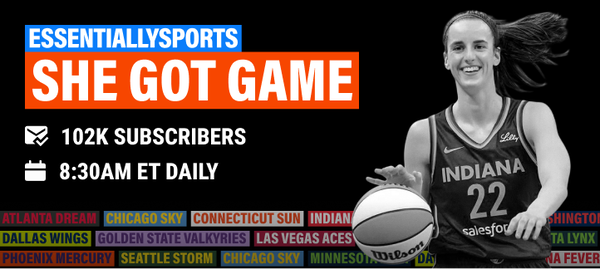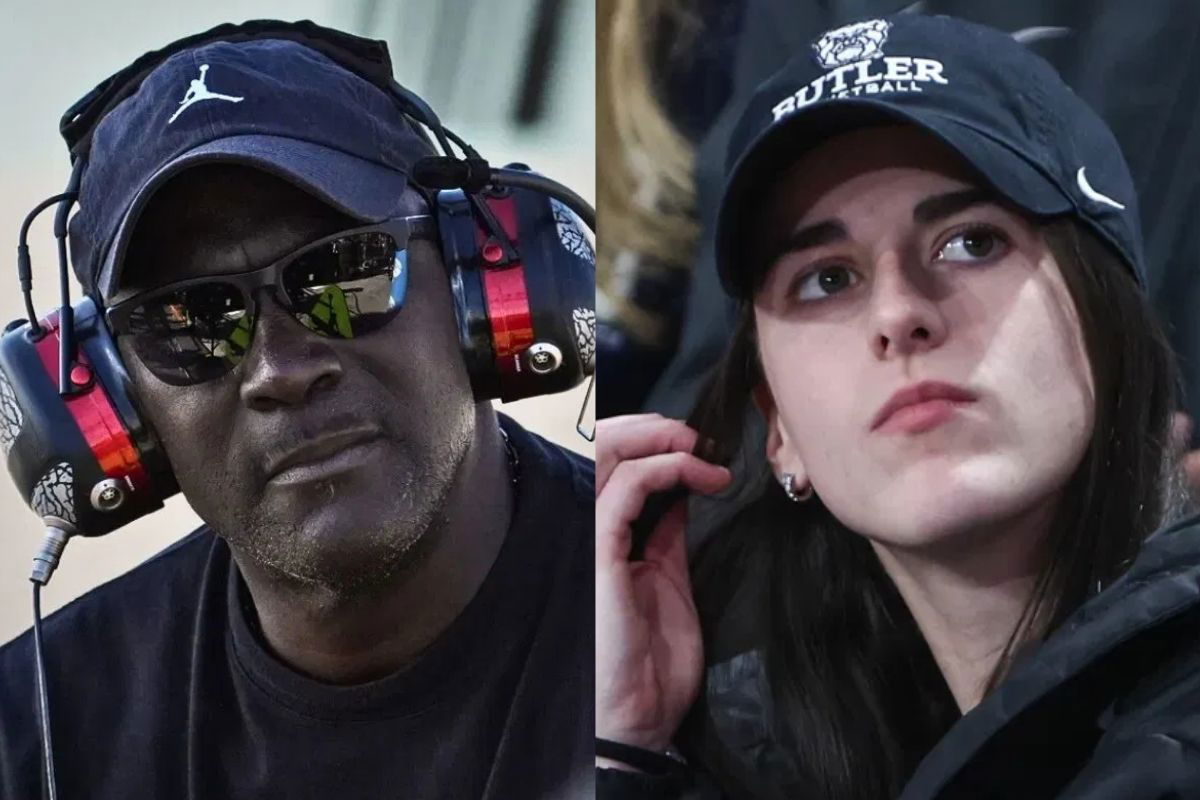
Imago
Michael Jordan, Caitlin Clark

Imago
Michael Jordan, Caitlin Clark
It’s not just drama for drama’s sake at this point. The WNBA has been handed a generational star on a silver platter and still seems unsure of what to do with her. They have been “business as usual,” as Cheryl Reeve put it, and hence missing out on opportunities, as she further warned. And all this after the league had been pleading for a player like Clark for years, after rightfully calling out the media for overlooking women’s basketball. They’ve pointed to sexism, lack of coverage, and structural bias as reasons they’ve lagged behind other pro sports leagues. Fair points. But now that the spotlight is finally here – and it’s here because of Clark – they have to step up and keep it. That starts with treating Caitlin like what she is: a superstar. That’s why Michael Jordan’s longtime agent, David Falk, has come in support of Clark and heavily criticized the WNBA and its commissioner, Cathy Engelbert.
Watch What’s Trending Now!
He said on the Kevin Sheehan Show, “The downside (of growth), you know, is that there’s tremendous jealousy amongst the women in the WNBA towards Caitlin Clark for a variety of reasons. And, you know, one is because she’s making so much money and she hasn’t, quote, proven herself. Which is exactly what happened to a young guy named Michael Jordan, 1985 at the All-Star Game, when Isaiah and Magic did Gervin and froze him out because they were jealous that he had his own shoe.”
ADVERTISEMENT
The “Freeze-Out” of Michael Jordan during the 1985 NBA All-Star Game has become one of the most debated stories in basketball history. The idea that some of the league’s biggest stars, allegedly led by Isiah Thomas, deliberately kept the ball away from the young star was seen as an effort to humble him, because they were “jealous”. While there’s never been definitive proof of a coordinated freeze-out, it remains largely speculative, and the perception has endured. Some players have denied it ever happened, while others, including Jordan himself, have hinted that something was definitely off. In the end, fans didn’t need an official statement. They saw a young phenom being iced out and still standing tall.
A similar storyline could be seen in Clark’s journey, as some of her colleagues have given her similar treatment over her 1 and a half seasons. In her first season, she was thrown around with physical plays, with more flagrant fouls on her than any other player. She was told to get up and brush it off by the media. Even this season, she was put on the ground by Jacy Sheldon and Marina Mabrey in the Connecticut Sun game. And then, she was also voted as the 9th best guard by her peers, which was considered preposterous by the fans and experts alike. Falk further implored the players to leave their ‘jealousies’ aside for the sake of success for everyone.
ADVERTISEMENT
He said, “When Caitlin Clark is on the floor playing the Mystics, and we move from a 5,000 or 6,000-seat arena to a 20,000-seat arena, all of you are going to make a hell of a lot more money. So put your petty jealousies and enmities aside and understand from a business standpoint, this is a great thing for the league.”
No matter the location, nearly every game featuring Caitlin Clark draws a sellout or near-sellout crowd. Since her arrival, the Indiana Fever’s average attendance has skyrocketed – from around 5,000 to 18,000. But Clark isn’t just elevating her own profile; she’s consistently advocated for her peers as well. She’s making those around her more visible, and in turn, they’re earning more recognition and revenue than ever before. Even if she’s in the spotlight, everyone around her is benefiting like never before.
ADVERTISEMENT
Falk got pretty specific next, saying, “If she got fouled by the girl on the Chicago team in a Dead Ball deal. I’d suspend that girl for five games because I don’t want to take my cash cow Caitlin Clark and have her sidelined for a month because some girls, jealous she’s worth so much money, think I think that was really, really poorly handled.”
The foul he is likely referring to is the Chennedy Carter foul on Clark, to which Reese cheered from the sidelines. The ball was nowhere near Clark as the play was restarting, and Carter pushed her to the floor. That was initially judged as a personal foul but upgraded to a flagrant 1 later. Falk further compared this situation to the NBA, where this kind of behavior is not tolerated. He said, “I think that would never happen in the NBA if a Fringe player bowed to Magic Johnson. Michael Jordan or LeBron James ,or Steph Curry like that, they’d be suspended. And I think I think the commission was asleep at the switch on the night.”
The NBA and WNBA operate under very different standards when it comes to fouls and physicality. The NBA favors offensive movement and protects scorers, while the WNBA allows much more physical defense, sometimes too much. Many experts have called for a shift in this approach, not just to protect stars like Caitlin Clark, but to safeguard all players.
ADVERTISEMENT
This season has already seen a wave of injuries, including multiple ACL tears, and the problem began even before tip-off. For a league with a smaller roster pool than the NBA, the WNBA simply can’t afford to keep losing its most marketable and talented players. With mounting public criticism and growing concerns from fans, media, and players alike, it’s time for the league to step up. The health of the game and its future depend on it.
Clark’s Role In CBA Negotiations Is the Most Crucial
The WNBA’s recent surge in popularity is just the beginning. With the right steps, it has the potential to become one of the premier sports leagues in the country. One of the most crucial next moves? Reforming the Collective Bargaining Agreement (CBA) to better support the players, the very people who drive the league’s growth.
ADVERTISEMENT
To put things in perspective: stars like Caitlin Clark and Angel Reese may be household names, but their league salaries make up only a small fraction of their total income. Most of their earnings come from endorsements. That’s not a luxury available to every player. Many WNBA athletes are still forced to play overseas during the off-season just to make ends meet. But change is coming. The upcoming CBA negotiations in 2025 could reshape the financial landscape of the league, and Clark is reportedly playing a central role in the conversation. Former NBA Players Association deputy general counsel Hal Biagas pointed out that Clark’s popularity can be useful in the negotiation room.
“The truth is Caitlin has an outsized voice because of her fame and popularity,” Biagas said. “The question is, how does she use it, and how does the [union] want her to use it?”
Top Stories
Prayer Pours In From Gisele Bündchen as Tom Brady’s Ex-Wife Mourns Tragic Personal Loss

Bills Announce Concerning Josh Allen News as Owner Unloads on NFL Refs For Brandin Cooks Incident
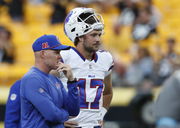
ESPN’s Troy Aikman Bids Goodbye as NFL Broadcasting Season Ends for the Network
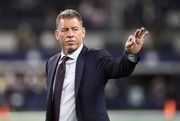
Jim Kelly Doesn’t Hold Back In Public Message to Sean McDermott as Bills Identify Next HC

Ousted Hailie Deegan Makes Shocking NASCAR Return After Failed IndyCar Experiment

Who Are Kyle Tucker’s Parents? All about Mike Tucker and Lisa Fernandez

Caitlin Clark is undeniably the most popular and most valuable player in the WNBA. Her presence alone has the power to boost every player’s paycheck, especially with the new media rights deal kicking in next season. That deal, an 11-year agreement with Disney, NBC, and Amazon, is worth an average of $200 million per year.
ADVERTISEMENT
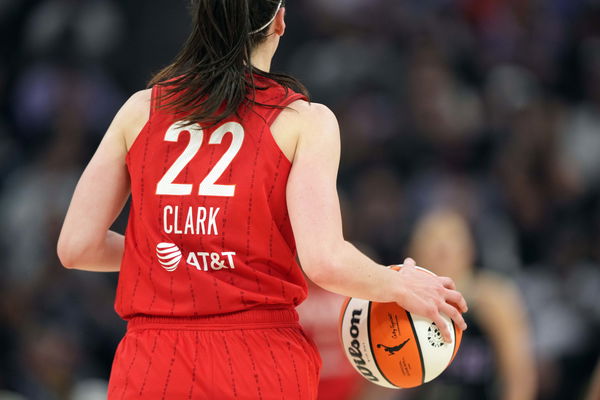
Imago
Jun 19, 2025; San Francisco, California, USA; Indiana Fever guard Caitlin Clark (22) dribbles against the Golden State Valkyries during the second quarter at Chase Center. Mandatory Credit: Darren Yamashita-Imagn Images
Clark may not sit on the union’s CBA committee, but neither did Michael Jordan during the NBA’s 1998 labor negotiations. That didn’t stop him from stepping in. Jordan used his influence to support his fellow players, attending two critical meetings and helping save a season that was on the brink after a six-month lockout.
When Billy Hunter took over as executive director of the players’ union, he figured, why not shoot for the stars? So, he asked Michael Jordan if he wanted to be union president. Unsurprisingly, Jordan passed, probably too busy winning titles, launching a sneaker empire, and being, well, Michael Jordan. Still, MJ didn’t ghost the group chat. As Jim McIlvaine said, “I think nobody went out of their way to help the league more than Michael Jordan…He was such a meal ticket for everybody that all the owners perked up when he showed up. Suddenly, they were ready to talk and negotiate.”
ADVERTISEMENT
Now, Clark could play a similar role.
ADVERTISEMENT
ADVERTISEMENT
ADVERTISEMENT
